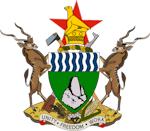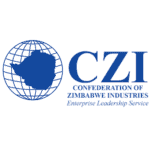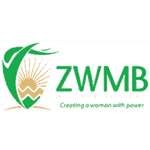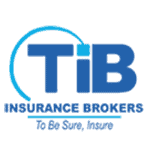- Type of Government: Presidential Republic
- Population: Approximately 16.7 million (2023 estimate)
- GDP: $20.56 billion USD (2023 estimate)
- Corporate Tax Rate: 24% (with additional 3% AIDS Levy)
- Personal Income Tax Rate: Progressive rates from 0% to 40% (top marginal rate)
- Major Exports: Minerals (platinum, gold, diamonds), tobacco, cotton, sugar, and tea.
- Major Imports: Machinery, chemicals, fuels, food products (wheat, maize), and vehicles.
Doing Business with Zimbabwe
A comprehensive guide to doing business, exporting, investing, and manufacturing in Zimbabwe
1. Research Market and Demand
- Before exporting to Zimbabwe, it’s important to analyze the market demand for your products. You can do a market survey or consult trade organizations for insight on Zimbabwe’s needs and business environment.
- Key resources:
2. Understand Zimbabwe’s Import Regulations
- Get familiar with Zimbabwe’s import regulations to ensure compliance. Zimbabwe has strict rules on certain products, including agricultural goods, chemicals, and pharmaceuticals.
- Check Zimbabwe’s Customs Tariff Handbook for applicable tariffs and duties.
- Key resource:
3. Register Your Business with ZIMRA
- All businesses exporting to Zimbabwe must be registered with the Zimbabwe Revenue Authority (ZIMRA).
- You will need to obtain a Business Partner Number (BPN) from ZIMRA, which will allow you to interact with the customs and tax systems in Zimbabwe.
- Contact information:
- ZIMRA website: https://www.zimra.co.zw
- Email: [email protected]
4. Obtain an Export License (If Required)
- Some products require an export license or permit to be exported to Zimbabwe. These include agricultural products, minerals, and certain machinery.
- You can apply for the appropriate licenses through Zimbabwe’s Ministry of Industry and Commerce.
- Contact information:
- Ministry of Industry and Commerce: http://www.mic.gov.zw
- Email: [email protected]
5. Prepare Necessary Documents
Make sure you have all the required documentation for the export process. Common documents include:
- Commercial Invoice: A detailed invoice listing the goods being exported.
- Packing List: A list of items included in the shipment.
- Bill of Lading or Airway Bill: A contract between the exporter and the shipping company.
- Certificate of Origin: Required for certain goods to verify where they are produced.
- Export Declaration (Form CD1): This is submitted to ZIMRA through the ASYCUDA system for customs processing.
Additional documentation may be required based on the product and the importing sector.
6. Comply with Zimbabwe’s Standards and Quality Control
- Ensure that your exported products meet Zimbabwe’s quality and safety standards. This is particularly important for food and agricultural products, medical supplies, and machinery.
- The Standards Association of Zimbabwe (SAZ) is responsible for enforcing quality standards.
- Contact information:
- SAZ website: https://www.saz.org.zw
- Email: [email protected]
7. Determine Tariffs and Duties
- Check what import duties and taxes will apply to your products. Zimbabwe has a range of tariffs depending on the product category.
- Use the ZIMRA Tariff Book to find specific rates.
- Contact ZIMRA for further information on tariffs and duties:
- ZIMRA website: https://www.zimra.co.zw
8. Hire a Customs Clearing Agent
- For smooth customs clearance, it is recommended to hire a reputable Clearing Agent in Zimbabwe who is familiar with local customs procedures and can facilitate the efficient movement of your goods.
- A list of registered clearing agents can be obtained from ZIMRA or the Shipping and Forwarding Agents Association of Zimbabwe (SFAAZ).
- Contact information:
- SFAAZ website: http://www.sfaaz.org
9. Ship and Insure Your Goods
- Once all documentation is in order, arrange for the shipment of your goods. Make sure that your shipment is fully insured to avoid losses.
- If necessary, apply for Export Credit Insurance through your local export credit agency.
10. Clear Customs in Zimbabwe
- When your goods arrive in Zimbabwe, they must go through customs clearance. Ensure your clearing agent submits all the required documentation to ZIMRA, including the customs declaration (Form CD1).
- ZIMRA will assess the goods and ensure that the correct duties and taxes have been paid. In some cases, an inspection will be required before the goods are released.
11. Ensure Payment Collection
- Finalize the payment terms for the goods exported. Make sure that you use a secure method of payment, such as a Letter of Credit (LC) or Documentary Collection, to ensure timely and secure payment from Zimbabwean importers.
12. Keep Updated on Trade Policies
- Zimbabwean trade policies and regulations can change frequently. Stay informed about updates by regularly visiting the ZIMRA website or subscribing to trade newsletters from relevant Zimbabwean government agencies.
1. Register Your Business with ZIMRA
- All importers in Zimbabwe must be registered with the Zimbabwe Revenue Authority (ZIMRA). You need to obtain a Business Partner Number (BPN), which will allow you to interact with the customs and tax systems.
- Contact information:
- ZIMRA: https://www.zimra.co.zw
- Email: [email protected]
- Phone: +263 242 758891-5
2. Determine Import Restrictions and Licensing Requirements
- Zimbabwe has restrictions on the importation of certain goods. For some products, like agricultural goods, chemicals, and pharmaceuticals, you may need an import license.
- The Ministry of Industry and Commerce issues import licenses, and it’s essential to check whether your product requires one.
- Contact information:
- Ministry of Industry and Commerce: http://www.mic.gov.zw
- Email: [email protected]
- Phone: +263 242 702623
3. Check Import Tariffs and Duties
- Use the Zimbabwe Customs Tariff Handbook to check the applicable duties and tariffs on the goods you intend to import. Zimbabwe imposes varying duty rates depending on the product category.
- You can access the customs tariff rates on the ZIMRA website or consult with a customs clearing agent for specific details.
- Contact ZIMRA for further information:
- ZIMRA website: https://www.zimra.co.zw
4. Hire a Registered Clearing Agent
- It is highly recommended to hire a registered Clearing Agent to help with customs formalities. Clearing agents will assist with submitting the necessary documentation to ZIMRA and ensure compliance with import regulations.
- You can find a list of registered clearing agents via the Shipping and Forwarding Agents Association of Zimbabwe (SFAAZ).
- Contact information:
- SFAAZ: http://www.sfaaz.org
- Email: [email protected]
- Phone: +263 242 751343
5. Submit Pre-Shipment Documents
- Before your goods arrive in Zimbabwe, you should prepare and submit the necessary pre-shipment documents. These documents typically include:
- Commercial Invoice: Provides details of the goods being imported, including their value.
- Packing List: A detailed list of what is inside the shipment.
- Bill of Lading or Airway Bill: A document issued by the shipping company that serves as evidence of the contract of carriage.
- Certificate of Origin (if applicable): To verify the origin of the goods.
- Import Declaration (Form 21): This must be submitted to ZIMRA electronically via the ASYCUDA system.
6. Make Import Duty and Tax Payments
- Once your goods arrive, ZIMRA will assess the applicable import duties, value-added tax (VAT), and any other applicable levies.
- You will need to make these payments before the goods can be cleared through customs. The payment can be made via bank transfer or through the ZIMRA online payment system.
- ZIMRA will issue you with a Customs Clearance Certificate once these payments are made.
7. Customs Clearance and Inspection
- Once the duties and taxes are paid, your goods will undergo customs clearance. ZIMRA may inspect the shipment to ensure the goods match the declared items and quantities. Inspections are often mandatory for high-value goods or items under import restrictions.
- Your clearing agent will facilitate the customs inspection process, if required.
8. Obtain an Import License (if required)
- If your goods are subject to import restrictions, you should apply for an import license well in advance. The most common items that require import licenses include:
- Agricultural products
- Chemicals
- Pharmaceuticals
- Fuel
- Licenses are typically granted by the Ministry of Industry and Commerce or other relevant regulatory bodies, such as the Medicines Control Authority of Zimbabwe (for pharmaceutical imports).
- Contact information:
- Medicines Control Authority of Zimbabwe: http://www.mcaz.co.zw
- Email: [email protected]
- Phone: +263 242 708255
9. Ensure Compliance with Standards and Quality Regulations
- Some goods have specific quality control and safety standards that must be met before they can enter the Zimbabwean market, especially food, electronics, and machinery.
- The Standards Association of Zimbabwe (SAZ) is responsible for enforcing quality standards on goods sold or imported into Zimbabwe.
- Contact information:
- SAZ: https://www.saz.org.zw
- Email: [email protected]
- Phone: +263 242 885511-2
10. Transport and Delivery of Goods
- Once your goods have cleared customs, you can arrange for their delivery within Zimbabwe. Ensure that your goods are insured while in transit to cover any risks during transportation.
- You may also need to coordinate with a logistics company to handle the internal transport of goods to your destination.
11. Post-Clearance Compliance
- After the goods have been imported, ensure that you keep all records of the imported goods, taxes, and duties paid. ZIMRA may conduct post-clearance audits, and it’s important to maintain proper documentation for compliance.
12. Stay Updated on Import Regulations
- Import regulations and policies in Zimbabwe can change. It is advisable to stay updated on any changes by regularly visiting ZIMRA’s website or subscribing to newsletters from relevant government agencies.
Steps to Incorporate a Company in Zimbabwe
1. Choose a Company Name
- The first step in incorporating a company in Zimbabwe is to choose an appropriate company name. The name must be unique and not similar to any existing registered company.
- Name Search: Conduct a name search with the Registrar of Companies under the Ministry of Justice, Legal, and Parliamentary Affairs to ensure the name is available.
- Cost: The fee for a name search is approximately USD 5.
- Contact information:
- Registrar of Companies: http://www.boppela.co.zw
- Phone: +263 242 777505-6
2. Reserve the Company Name
- Once the name is approved, you can submit a Name Reservation Form (CR 21) to the Registrar of Companies. This reserves the name for 30 days, during which time you must complete the registration process.
- Cost: The fee for name reservation is approximately USD 10.
- Contact information:
- Registrar of Companies: http://www.boppela.co.zw
3. Prepare Company Documents
- You will need the following documents to register a company:
- Memorandum of Association: Outlines the company’s objectives and the scope of its operations.
- Articles of Association: Provides the internal regulations for the management of the company.
- A lawyer or company secretary can help draft these documents to ensure they meet the legal requirements.
4. Register the Company with the Registrar of Companies
- Submit the Memorandum and Articles of Association, the Name Reservation Form, and the company’s statutory forms to the Registrar of Companies.
- The statutory forms include:
- CR 6: Physical address of the company.
- CR 14: Details of the company directors and secretaries.
- CR 5: Company share capital.
- Cost: Registration fees vary based on the company’s share capital. Typical fees range from USD 100 to USD 200.
- Contact information:
- Registrar of Companies: http://www.boppela.co.zw
5. Register for Tax with ZIMRA
- After registering with the Registrar of Companies, you must register for taxes with the Zimbabwe Revenue Authority (ZIMRA). This includes obtaining a Business Partner Number (BPN) and registering for Value Added Tax (VAT), Income Tax, and Pay As You Earn (PAYE) if you have employees.
- Cost: There is no direct fee for tax registration, but you must comply with Zimbabwe’s tax laws.
- Contact information:
- ZIMRA: https://www.zimra.co.zw
- Email: [email protected]
- Phone: +263 242 758891-5
6. Register with NSSA (National Social Security Authority)
- If you plan to employ staff, you must register with the National Social Security Authority (NSSA) for social security contributions and workplace injury insurance. You will need to submit a form to register your company as an employer.
- Cost: There are no registration fees, but employers are required to contribute a percentage of each employee’s salary towards social security.
- Contact information:
- NSSA: http://www.nssa.org.zw
- Phone: +263 242 706517
7. Open a Corporate Bank Account
- Once the company is registered, you need to open a corporate bank account in Zimbabwe. Most banks will require your company registration documents, tax registration certificate, and the personal identification of company directors.
- Cost: Bank account opening fees vary depending on the bank but typically range from USD 50 to USD 100.
8. Obtain Any Necessary Business Licenses
- Depending on the nature of your business, you may need additional business licenses or permits. Examples include:
- Shop and Trading Licenses: For retail businesses.
- Environmental Impact Assessment (EIA): For businesses that may affect the environment.
- Contact the relevant local authorities or ministries to ensure compliance.
- Cost: Licensing fees vary by industry and can range from USD 50 to USD 1,000 depending on the business type.
- Contact information:
- Environmental Management Agency (EMA): http://www.ema.co.zw
9. Register for Employee Compensation Insurance
- If you employ staff, you must also register for Workers’ Compensation Insurance with NSSA to cover injuries or accidents at the workplace.
- Cost: The cost is based on the risk category of your business and the number of employees. Contributions are typically a percentage of employee salaries.
10. Post-Incorporation Compliance
- After incorporation, you must comply with Zimbabwe’s ongoing filing requirements. This includes submitting annual returns with the Registrar of Companies and keeping your tax filings up to date.
- Cost: The annual return filing fee is approximately USD 30.
Setting up a manufacturing plant in Zimbabwe involves a series of steps to ensure compliance with local laws, obtain necessary permits, and secure financing. Below is a comprehensive guide that outlines the steps required to establish a manufacturing plant, along with key contacts in the government and relevant agencies.
Steps to Set Up a Manufacturing Plant in Zimbabwe
1. Conduct a Feasibility Study
- Before setting up a manufacturing plant, conduct a feasibility study to assess the market demand, competition, production costs, and potential profitability. This should include evaluating the availability of raw materials, labor, and infrastructure (such as electricity, water, and transport).
- Consider consulting with a local market research firm or an investment advisor.
- Key resource:
- Zimbabwe Investment and Development Agency (ZIDA): https://www.zidainvest.com
2. Choose a Suitable Location
- Select an appropriate location for your manufacturing plant. Factors to consider include proximity to raw materials, access to transportation networks (highways, railways), availability of labor, and access to utilities (electricity, water).
- Some areas are designated as Special Economic Zones (SEZs), offering tax incentives and other benefits for manufacturers. These zones are managed by ZIDA.
- Contact ZIDA for information on SEZs and industrial parks:
3. Incorporate Your Company
- Register your business with the Registrar of Companies in Zimbabwe. This step includes choosing a company name, filing the Memorandum and Articles of Association, and obtaining the necessary certificates.
- You will also need to register for tax purposes with the Zimbabwe Revenue Authority (ZIMRA) and obtain a Business Partner Number (BPN).
- Steps to incorporate a company are detailed in the guide on company incorporation in Zimbabwe.
- Contact information:
- Registrar of Companies: http://www.boppela.co.zw
- ZIMRA: https://www.zimra.co.zw
4. Obtain Business Licenses and Permits
- Depending on the type of products you will manufacture, you may need various licenses and permits from the Ministry of Industry and Commerce and other regulatory bodies.
- Common permits include:
- Manufacturing License: Issued by the Ministry of Industry and Commerce.
- Environmental Impact Assessment (EIA): Required to assess the environmental impact of your plant. This is issued by the Environmental Management Agency (EMA).
- Contact information:
- Ministry of Industry and Commerce: http://www.mic.gov.zw
- Environmental Management Agency (EMA): http://www.ema.co.zw
- Phone: +263 242 305543
5. Secure Land and Facilities
- You will need to secure land or lease industrial space for your plant. This can be done by purchasing land from the government or private sellers, or through leasing in industrial zones.
- If purchasing land, ensure the title deeds are clear and consult with a local attorney for the legal transfer of land ownership.
- For leasing land in SEZs, contact ZIDA for available industrial properties:
6. Obtain Construction Permits
- If you are building a new facility, you will need to obtain construction permits from the local authorities where the plant will be located. This includes permits for site development, building design approval, and utility connections.
- Local Town Council or Municipality will issue these permits.
- Contact information:
- Zimbabwe Local Government Authority: https://www.localgov.co.zw
7. Register with the National Social Security Authority (NSSA)
- If you will be employing workers, you must register with the National Social Security Authority (NSSA). This is mandatory for employers and provides social security benefits to employees.
- You will also need to register for Workers’ Compensation Insurance to cover workplace injuries.
- Contact information:
- NSSA: http://www.nssa.org.zw
- Phone: +263 242 706517
8. Install Utilities (Power, Water, Telecommunications)
- Secure necessary utility connections for your plant, including electricity, water, and telecommunications.
- Contact ZESA Holdings for electricity connections and Zimbabwe National Water Authority (ZINWA) for water supply:
- ZESA (Zimbabwe Electricity Supply Authority): http://www.zesa.co.zw
- ZINWA: http://www.zinwa.co.zw
9. Comply with Environmental Regulations
- Manufacturing plants are subject to environmental regulations in Zimbabwe. You will be required to prepare an Environmental Impact Assessment (EIA) and submit it to the Environmental Management Agency (EMA). The EIA ensures that your plant meets environmental standards and minimizes its ecological footprint.
- Cost: The cost of an EIA will depend on the scale of the project and the assessment requirements.
- Contact information:
- EMA: http://www.ema.co.zw
10. Procure Machinery and Equipment
- Once the plant is set up, you will need to purchase or import the necessary machinery and equipment for your manufacturing process. Ensure that the equipment complies with Zimbabwe’s safety and environmental standards.
- You may need to register imported machinery with ZIMRA for duty exemptions or incentives if applicable.
11. Hire and Train Employees
- Recruitment of skilled and unskilled labor is a key step. You can advertise job openings via local media, job boards, or recruitment agencies.
- You may also need to provide training programs for your employees to ensure they are familiar with the manufacturing process and safety protocols.
- Labour Laws: Ensure compliance with Zimbabwe’s labor laws, including wages, working conditions, and employee benefits. Contact the Ministry of Public Service, Labour, and Social Welfare for guidance:
- Ministry of Labour: http://www.labour.gov.zw
12. Apply for Investment Incentives (Optional)
- Zimbabwe offers a range of incentives for investors in the manufacturing sector, particularly for those operating in Special Economic Zones (SEZs) or focusing on export-oriented businesses.
- Incentives include tax holidays, reduced tariffs, and duty exemptions on imported machinery.
- Contact ZIDA for more details on available incentives:
13. Begin Manufacturing Operations
- Once all permits and licenses are secured, employees are hired, and machinery is installed, you can begin operations. Monitor production closely and ensure that your plant complies with health and safety regulations, environmental standards, and labor laws.
14. Post-Setup Compliance
- After setting up the plant, ensure compliance with ongoing obligations such as:
- Filing annual returns with the Registrar of Companies.
- Paying taxes and duties to ZIMRA.
- Submitting environmental compliance reports to EMA.
- Filing employee social security contributions with NSSA.
Steps to Register a Trademark in Zimbabwe
1. Conduct a Trademark Search
- Before you apply for trademark registration, it is essential to conduct a trademark search to ensure that the mark you want to register is unique and not already in use or registered by someone else. This search can be done at the Zimbabwe Intellectual Property Office (ZIPO).
- A trademark search checks the existing database of registered trademarks to avoid conflicts.
- Cost: The fee for conducting a search is approximately USD 25.
- Contact information:
- Zimbabwe Intellectual Property Office (ZIPO): http://www.boppela.co.zw
- Phone: +263 242 794 426
2. Prepare Your Application
- After confirming that your desired trademark is available, prepare the necessary documents for submission. These include:
- Application Form (TM 1): This form includes details about the applicant, the trademark, and the class in which the trademark is to be registered.
- Representation of the Mark: This is a clear representation of the logo, word, phrase, or design that you want to register as your trademark.
- Details of Goods/Services: A detailed description of the goods or services that the trademark will cover. Zimbabwe follows the Nice Classification, which categorizes goods and services into 45 classes.
- You may need to consult a trademark attorney or agent to ensure that your application is properly prepared.
3. Submit the Application to ZIPO
- Submit your completed application form along with the necessary documents to the Zimbabwe Intellectual Property Office (ZIPO) at the Ministry of Justice, Legal and Parliamentary Affairs.
- Costs:
- Filing fee for one class: USD 50 (additional fees apply for multiple classes).
- Late fees may apply if there is a delay in submission.
- Contact information:
- ZIPO: http://www.boppela.co.zw
- Email: [email protected]
- Phone: +263 242 794 426
4. Examination by ZIPO
- Once your application is submitted, ZIPO will conduct a formal examination to check if the application complies with the legal requirements. The office will also examine whether the mark is distinctive and not confusingly similar to any existing trademarks.
- If ZIPO raises any objections (e.g., the mark is too similar to a registered one), they will notify you, and you may need to respond by amending the application or providing additional documentation.
- Cost: No additional fees for the examination, unless amendments are required.
5. Publication in the Patent and Trade Marks Journal
- If your trademark application passes the examination stage, it will be published in the Zimbabwe Patent and Trade Marks Journal for opposition. This publication allows third parties an opportunity to object to the registration of the trademark.
- The opposition period is 2 months from the date of publication.
- Cost: The cost for publication is approximately USD 30.
6. Opposition Proceedings (if any)
- If no opposition is filed within the 2-month period, your trademark will proceed to registration.
- In the event of an opposition, both parties must present their cases to ZIPO, which will decide whether the opposition is valid or not.
- Cost: Legal fees for handling opposition cases vary. You may need to hire a trademark attorney to represent you.
7. Receive the Certificate of Registration
- If no opposition is filed, or if opposition is resolved in your favor, ZIPO will issue a Certificate of Registration for your trademark. The certificate confirms that your mark is now registered and protected under Zimbabwean law.
- Cost: The issuance fee for the registration certificate is approximately USD 50.
8. Renewal of Trademark
- A registered trademark in Zimbabwe is valid for 10 years from the date of registration. It can be renewed indefinitely for successive periods of 10 years.
- Cost: The renewal fee is approximately USD 50 for each class.
- You should apply for renewal before the expiration date to avoid any penalty fees.
9. Post-Registration Compliance
- After the trademark is registered, it is important to monitor the market for any potential infringement. If another party uses a similar or identical mark without your permission, you can take legal action to enforce your rights.
- Keep track of your renewal dates to ensure your trademark remains valid.
Resolving commercial disputes in Zimbabwe involves various legal avenues, including negotiation, mediation, arbitration, and litigation. This guide outlines the step-by-step process for resolving commercial disputes, associated costs, and key contacts in relevant government bodies and agencies.
1. Attempt Negotiation and Settlement
- Before pursuing formal dispute resolution processes, parties are encouraged to attempt negotiation. This involves direct discussions between the disputing parties to reach a mutually acceptable solution.
- Many commercial contracts in Zimbabwe contain dispute resolution clauses that require parties to attempt negotiation before escalating the matter.
- Negotiation is typically the least expensive resolution method.
Costs:
- No formal costs are associated with negotiation, though legal advice or representation may incur fees ranging from USD 50 to USD 200 per hour, depending on the lawyer’s experience.
2. Engage in Mediation (Optional)
- If negotiation fails, parties may opt for mediation. Mediation is a voluntary, informal process where a neutral third party (the mediator) helps the disputing parties reach a resolution. Mediation is often faster and less adversarial than litigation.
- Mediation may be conducted independently or under the auspices of the Commercial Arbitration Centre or other mediation service providers in Zimbabwe.
Costs:
- Mediation fees vary depending on the mediator’s expertise and the complexity of the case. Fees typically range from USD 200 to USD 1,000 for the entire process.
Key Contacts:
- Commercial Arbitration Centre (CAC):
- Website: http://www.arbitration.co.zw
- Email: [email protected]
- Phone: +263 242 700 710
3. Consider Arbitration
- Arbitration is a formal, private dispute resolution mechanism where an independent arbitrator (or panel of arbitrators) hears both parties’ arguments and makes a binding decision.
- Zimbabwe’s Arbitration Act [Chapter 7:15] governs the arbitration process. Many commercial contracts include an arbitration clause, stipulating that disputes will be resolved through arbitration rather than litigation.
- Arbitration is a popular choice for resolving commercial disputes because it is quicker and more flexible than court litigation, and the proceedings are confidential.
Costs:
- Arbitration fees depend on the arbitrator’s experience, the complexity of the case, and the arbitration institution’s fee structure. Costs typically range from USD 2,000 to USD 10,000.
- Each party is responsible for its legal fees, which can range from USD 100 to USD 300 per hour for legal representation, depending on the lawyer’s experience.
Key Contacts:
- Commercial Arbitration Centre (CAC):
- Website: http://www.arbitration.co.zw
- Email: [email protected]
- Phone: +263 242 700 710
- Zimbabwe International Arbitration Centre (ZIAC):
- Website: https://www.ziac.co.zw
- Email: [email protected]
- Phone: +263 242 783 201
4. Litigation (Court Proceedings)
- If arbitration or mediation fails, or if the parties do not agree to use these methods, the dispute can be resolved through litigation in Zimbabwe’s court system.
- Commercial disputes are generally handled by the Commercial Court, which is a division of the High Court of Zimbabwe. The court has jurisdiction over large-scale commercial disputes, including contract breaches, business disputes, and insolvency matters.
- The process involves filing a claim, attending pre-trial conferences, and having the case heard before a judge, who then makes a binding decision.
Costs:
- Court filing fees: These vary depending on the nature of the case and the amount in dispute. Filing fees typically range from USD 50 to USD 500.
- Legal representation: Legal fees for litigation depend on the complexity of the case and the lawyer’s experience, usually ranging from USD 100 to USD 400 per hour.
- Other costs: Additional costs may include expert witness fees, document preparation, and administrative costs.
Key Contacts:
- High Court of Zimbabwe (Commercial Court Division):
- Website: http://www.jsc.org.zw
- Phone: +263 242 774 586
5. Enforcement of Judgments
- Once a judgment is obtained from either arbitration or litigation, it must be enforced if the losing party does not voluntarily comply with the decision. This may involve court orders to seize assets, garnish wages, or freeze bank accounts.
- Zimbabwe’s Deputy Sheriff enforces court judgments.
Costs:
- Enforcement costs vary but typically range from USD 50 to USD 500, depending on the complexity of enforcement actions.
6. Appeals (If Necessary)
- If a party is dissatisfied with the judgment, they may appeal the decision to a higher court. Appeals from the Commercial Court are heard by the Supreme Court of Zimbabwe.
- Appeals are generally limited to errors in the application of law rather than re-examining facts.
Costs:
- Appeal filing fees: Typically range from USD 100 to USD 500.
- Legal representation: Legal fees for an appeal can range from USD 200 to USD 500 per hour, depending on the lawyer’s expertise.
Key Contacts:
- Supreme Court of Zimbabwe:
- Website: http://www.jsc.org.zw
- Phone: +263 242 774 586
7. Alternative Dispute Resolution (ADR) Centers
- Zimbabwe has ADR centers that facilitate mediation, arbitration, and other forms of dispute resolution outside of the court system. These centers help businesses resolve disputes quickly and cost-effectively.
- Popular ADR institutions include the Commercial Arbitration Centre (CAC) and the Zimbabwe International Arbitration Centre (ZIAC).
Key Contacts:
- Commercial Arbitration Centre (CAC):
Website: http://www.arbitration.co.zw
Email: [email protected]
Phone: +263 242 700 710 - Zimbabwe International Arbitration Centre (ZIAC):
Website: https://www.ziac.co.zw
Email: [email protected]
Phone: +263 242 783 201
8. Legal Advice and Representation
- It is advisable to seek legal advice and representation when dealing with commercial disputes. Commercial lawyers can help you navigate the complexities of Zimbabwe’s legal and arbitration systems and ensure that your rights are protected throughout the process.
Key Contacts:
- Law Society of Zimbabwe:
Website: http://www.lawsociety.org.zw
Phone: +263 242 764 207
Email: [email protected]
When considering doing business in Zimbabwe, it is essential to understand not only the economic and legal frameworks but also the social, cultural, political, and financial environments. Below are key factors that entrepreneurs and investors should take into account when entering the Zimbabwean market.
1. Political Environment
Zimbabwe’s political environment has a significant impact on its business climate. The country has experienced political instability, particularly around elections, which can affect investor confidence. However, the government has made efforts to stabilize the political situation and has introduced policies aimed at attracting foreign investment.
- Current Government: Zimbabwe is a republic with a presidential system. The current president is Emmerson Mnangagwa, who came to power in 2017 following the resignation of Robert Mugabe.
- Indigenization Policy: The previous Indigenization and Economic Empowerment Act required foreign businesses to cede 51% ownership to local Zimbabweans. However, this policy has been relaxed in recent years, with the government now focusing on sectors such as natural resources. Investors should monitor changes in this policy.
2. Social and Cultural Factors
Zimbabwe has a rich cultural heritage, and understanding the country’s social dynamics is crucial for doing business.
- Ethnic Composition: Zimbabwe is predominantly made up of two major ethnic groups: the Shona and the Ndebele. The Shona constitute about 70% of the population, while the Ndebele make up approximately 20%. There are also smaller ethnic groups, including the Tonga and Venda.
- Language: English is the official language and is widely used in business and government. However, Shona and Ndebele are commonly spoken in informal settings.
- Business Etiquette: Zimbabwean culture places importance on respect and courtesy. Personal relationships are valued, and business meetings often begin with small talk before discussing business matters.
- Religion: Christianity is the dominant religion, influencing social norms and business practices, particularly in terms of work ethics and observances of public holidays.
3. Economic Environment
Zimbabwe’s economy has faced numerous challenges, including hyperinflation, high unemployment rates, and a liquidity crisis. However, the country has significant potential due to its natural resources and a young, dynamic workforce.
- Inflation: Zimbabwe has faced periods of hyperinflation, but recent efforts have been made to stabilize the economy. Inflation remains a concern, and prices can be volatile, which can affect business planning and pricing strategies.
- Key Sectors: The country’s economy is primarily driven by agriculture, mining, and tourism. These sectors present significant opportunities for investment, especially mining (gold, platinum, diamonds) and agriculture (tobacco, maize, cotton).
- Foreign Investment: Zimbabwe is actively seeking foreign investment. The Zimbabwe Investment and Development Agency (ZIDA) has been established to promote and facilitate investment in the country.
4. Foreign Exchange and Currency
Zimbabwe has experienced significant challenges with its currency, leading to periods of currency shortages and reliance on foreign currencies, particularly the US dollar.
- Current Currency System: Zimbabwe currently uses a multi-currency system, with the Zimbabwean Dollar (ZWL) being the official currency. However, the US dollar is widely used and accepted for transactions. Businesses often prefer using foreign currencies due to fluctuating exchange rates and limited availability of the ZWL.
- Foreign Exchange Regulations: There are strict foreign exchange controls in Zimbabwe. The Reserve Bank of Zimbabwe (RBZ) regulates foreign exchange, and businesses may face challenges repatriating profits or securing foreign currency for imports.
- Black Market: Due to currency shortages, a parallel or black market for foreign currency exists, which can distort exchange rates and create challenges for businesses looking to acquire foreign currency.
5. Legal and Regulatory Framework
Zimbabwe’s legal system is based on Roman-Dutch law, which is similar to other Southern African countries. The country has a well-developed legal framework, but enforcement can be inconsistent.
- Rule of Law: While Zimbabwe has a solid legal framework, including laws protecting property rights and contracts, enforcement can be slow, and corruption remains a challenge. Businesses should be prepared for potential delays in legal proceedings.
- Intellectual Property: Zimbabwe is a member of the World Intellectual Property Organization (WIPO) and has laws that protect trademarks, patents, and copyrights. However, piracy and counterfeiting can still be an issue.
- Labour Laws: Zimbabwe has strict labour laws that protect employees’ rights. Businesses must comply with regulations concerning wages, working conditions, and termination of employment. The National Social Security Authority (NSSA) oversees worker benefits such as pensions and workplace injury compensation.
- Taxation: The Zimbabwe Revenue Authority (ZIMRA) administers taxes, including corporate tax, VAT, and income tax. Zimbabwe’s corporate tax rate is 25%, and VAT is 14.5%. However, tax incentives are available for businesses in certain sectors, such as mining and Special Economic Zones (SEZs).
6. Infrastructure and Utilities
Zimbabwe’s infrastructure has deteriorated over the years due to underinvestment, but the government is making efforts to improve it. Key infrastructure considerations include:
- Transport: Zimbabwe has a relatively extensive road network, but many roads are in poor condition, especially in rural areas. The country’s rail network is also underdeveloped, which can hinder logistics. However, Zimbabwe is a key transit hub for the Southern African region, providing access to ports in South Africa and Mozambique.
- Electricity: Zimbabwe faces electricity shortages and frequent power cuts. Businesses often rely on generators or solar power for backup. ZESA Holdings is the main electricity provider, but its infrastructure is outdated, leading to power supply challenges.
- Water: Access to clean water can be inconsistent, especially in rural areas. Businesses, particularly those in manufacturing and agriculture, should ensure they have reliable water supplies.
- Telecommunications and Internet: Zimbabwe has a growing telecommunications sector, with Econet Wireless being the largest provider. Mobile penetration is high, but internet connectivity, particularly broadband, can be slow and expensive.
7. Corruption and Bureaucracy
Corruption and bureaucratic inefficiencies can present serious challenges to doing business in Zimbabwe.
- Corruption Perception: Zimbabwe ranks poorly on Transparency International’s Corruption Perception Index. Businesses may encounter demands for bribes or face delays due to bureaucratic red tape.
- Anti-Corruption Efforts: The government has established institutions such as the Zimbabwe Anti-Corruption Commission (ZACC) to combat corruption, but enforcement remains a challenge.
8. Human Capital and Labor Market
Zimbabwe has a highly educated workforce, with a literacy rate of over 89%, one of the highest in Africa. However, the country faces high unemployment rates, particularly among the youth.
- Skilled Labor: There is a large pool of skilled workers, particularly in fields such as finance, engineering, and IT. However, brain drain has led to shortages in certain sectors.
- Labor Costs: Wages in Zimbabwe are generally lower than in neighboring countries, making it an attractive destination for labor-intensive industries.
- Labour Regulations: Zimbabwean labor laws are stringent, especially concerning the dismissal of employees, making it important for businesses to understand the regulatory environment.
Ask our Experts on Doing Business in/with Zimbabwe
If you’re looking to do business or invest in Zimbabwe, we can provide expert guidance, market insights, and valuable connections to help you navigate the local landscape. Contact us today to discover how we can assist in making your venture a success.










